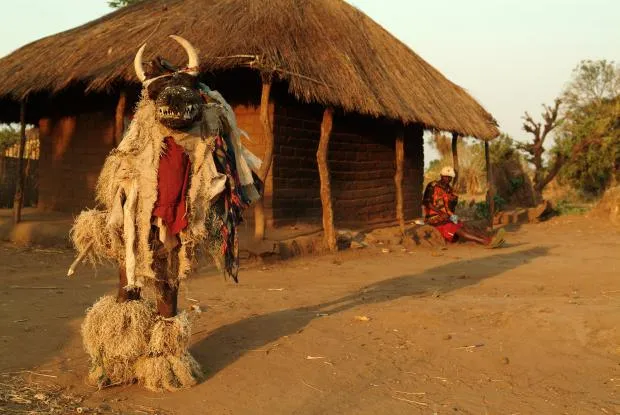Witchcraft and sorcery have deep roots in African traditions, varying significantly across different cultures and regions. These practices often play a crucial role in shaping social dynamicsDynamics is the branch of mechanics concerned with the force... More and addressing community challenges.
Table of Contents
Key Aspects of Witchcraft and Sorcery in African Tradition:
- Cultural Significance: Witchcraft in Africa encompasses a range of beliefs and practices that are integral to the social and spiritual fabric of many communities. These beliefs often involve the use of supernatural powers for both harmful and beneficial purposes.
- Distinction Between Witchcraft and Sorcery: In some African cultures, a distinction is made between witches and sorcerers. Witches are often believed to be born with supernatural abilities, while sorcerers are thought to acquire their powers through learning and the use of magical substances.
- Historical Context: Historically, witchcraft has been linked to political powerPower in physics is the rate of doing work; measured in watt... More and social control. In precolonial times, chiefs and kings were often believed to possess supernatural powers, which they could use for the benefit or detriment of their people.
- Modern Implications: Beliefs in witchcraft continue to influence various aspects of life in contemporary Africa, from law enforcement to public health. Witch doctors are consulted for healing, as well as for placing curses or seeking protection.
- Regional Variations: Different regions have unique traditions and practices. For example, in Zulu culture, healers known as sangomas use divination and ancestral connections to protect people from witchcraft1.
These beliefs and practices are deeply embedded in the cultural and social systems of many African communities, reflecting a complex interplay between tradition, spirituality, and modernity.
Witchcraft
To most Africans, witchcraft is an ugly reality. Witches are believed to be people with inherent powerPower in physics is the rate of doing work; measured in watt... More. Although some witches acquired these powers to protect their areas, it is mostly believed that the powers are evil, anti-social are not primarily used to harm people. A witch is called Umuloshi, Mulozi, Muloi, Mfiti and Mulozhi in Bemba, Tonga, Lozi, Chewa and Kaonde respectively. One may possess this powerPower in physics is the rate of doing work; measured in watt... More without awareness and can also use it destructively out of ignorance. This is what makes the concept of witchcraft mystifying, appalling and sinister. They operate mainly at night. They attend meetings spiritually because the body of those at the meeting will still be on their beds at home.

Sorcery
This is the application of evil magic on people or objects. Life and property can be destroyed. Generally, it is an anti-societal employment of supernatural powers. The following are the deeds of sorcerers.
· A sorcerer may call lighting, elephantiasis, or even apply direct poison on his victim.
· He may kill a victim by means of invocation through homeopathic magic.
· He may curse his victim who may become insane or commit suicide.
· He may send animals (snakes, scorpions) to his victim.
Consequently, they are seen as threats to peaceful coexistence in the society. As a result, most people resort to diviners and medicine-men for protection. Charms, amulets, medicinal drinks and ointments are used for protection as prescribed by diviners.
Medicine-Men
They are also called herbalists and traditional doctors. To the African mind, sicknesses and misfortunes of this world are spiritual. It requires religious approach for a lasting solution.
In Africa, medicine is part of God’s creation. It is associated with religion. So a medicine man does not practice in isolation. He is an intermediary between God and man. The medicine-man as such is accessible and he is a friend of the community. He plays an important role in communal life.
There is no fixed rule governing the ‘calling’ of the medicine-man usually, he is called when he is relatively young. Both sexes are represented in the profession but there are more men. Most medicine men are trustworthy, friendly, willing and ready to serve at moderate charges (or at no charge if their patient cannot afford it).
Professionally medicine-men usually undergo training. He is taught the medicinal value, the quality and use of different herbs, leaves, roots, fruits, barks, grasses and other things like dead insects, bones, feathers, powers, animal excreta and shells. He is also taught the causes, cures and prevention of common ailments and typical problems. He is trained also to combat witches and sorcerers and the handling of elemental spirits. After training he is publicly initiated and then recognized as a medicine-man. It is important to note that the medicine-men workWork is The transfer of energy from one physical system to a... More cooperatively and so training goes on even after formal learning.
Functions of Medicine-Men
· They combat witches, sorcerers and other forms of social misfortunes.
· They serve as doctors. They cure diseases. They discover the cause of the sickness, diagnose the nature and apply the right treatment. They suggest how to prevent future re-occurrence.
· They also practice divination. When individuals or the community at large want to know the cause of certain afflictions, the medicine-men are invited.
· They aid increased productivity and good results. They advise and assist on how to ensure success in business.
